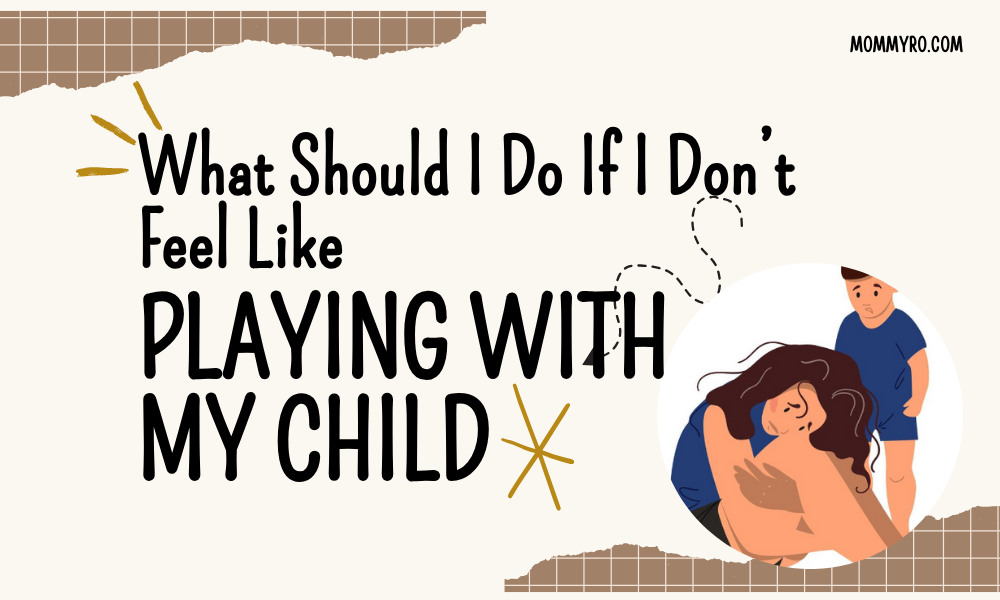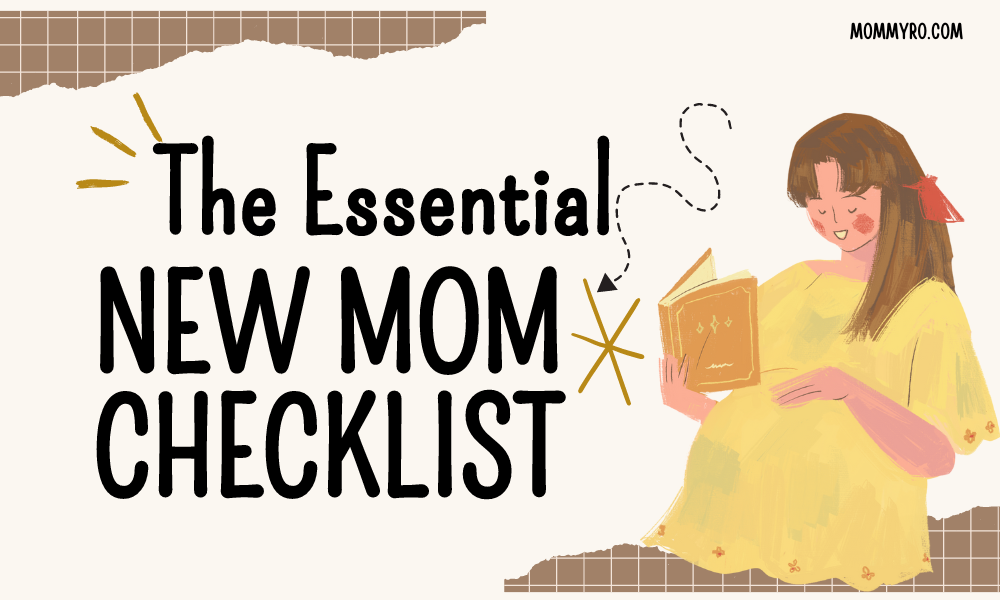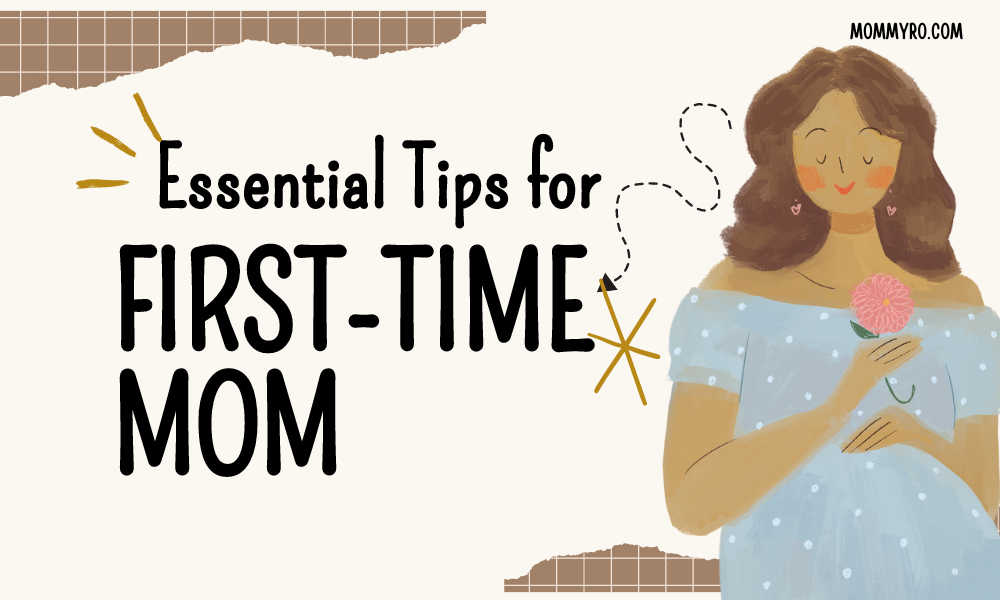Do you ever find yourself struggling to enjoy playtime with your child?
If the answer is YES, keep on reading. In this article, I will share with you the strategies I have learned for when I don’t enjoy playtime with my child.
As parents, we often find ourselves navigating through a myriad of emotions and challenges on our journey through parenthood.
From the heartwarming moments of watching our children grow to the inevitable hurdles that come with the territory, each day presents its own set of joys and struggles.
One challenge that many parents face, yet few openly discuss, is the struggle to enjoy playtime with their children.
If you’re a parent who has found themselves in this predicament, feeling guilty or uncertain about not relishing those moments of play, know that you are not alone.
As a fellow mother, I’ve experienced these feelings firsthand.
There have been moments where the exhaustion of daily life or personal preferences have made playtime with my son feel like a daunting task rather than a cherished bonding experience.
But through trial and error, I’ve discovered strategies that have helped me navigate these feelings and foster meaningful connections with my son, even when playtime doesn’t come naturally.
In this blog post, I want to share these strategies with you, in the hope that they may offer support and guidance to other parents who find themselves in similar situations.
So, if you’re feeling overwhelmed or unsure about how to approach playtime with your child, know that you’re not alone,
And there are strategies available to help you navigate this aspect of parenthood with compassion and understanding.
- Do you ever find yourself struggling to enjoy playtime with your child?
- I don't feel like playing with my child: Am I a bad mother?
- What to do about it?
- Strategies for Parents Who Don't Enjoy Playing with Their Children
- 1. Explain to your child, in an empathetic way, that you don't feel like playing
- 2. Avoid generating false expectations
- 3. Be flexible and consider different alternatives
- 4. Prioritize quality over quantity
- 5. Seek support from other family members
- 6. Encourage their independence, but without going overboard
- Calling All New Moms and Busy Moms Alike!
- Join Our Global Facebook Chat and Support Group for Moms of All Ages! 🌍👩👧👦
- Final Thoughts On Strategies for Parents Who Don't Enjoy Playing with Their Children
- How can you tailor these strategies to fit your unique relationship with your child, ensuring that both of you find joy and fulfillment in your time together?

I don’t feel like playing with my child: Am I a bad mother?
I answer you without hesitation: NO.
Just because you don’t feel like playing with your child doesn’t make you a bad mother.
This is a common concern among parents, and it is crucial to understand that it is not always possible to be willing to play.
Motherhood involves a variety of emotions and moods that don’t always align with personal or societal expectations.
Therefore, it is valid not to feel the desire to play.
Now, it is also important to explore the reasons behind this lack of interest.
Is it just due to fatigue?
Don’t know how to do it?
Could it be related to some difficulty in bonding with your child?
Or perhaps it is an indication of something deeper that deserves professional attention?
Let’s look at the answers to these questions below.
Also Read: Quotes and Words of Encouragement for Moms
What to do about it?
According to National Library of Medicine – Play is essential to development because it contributes to the cognitive, physical, social, and emotional well–being of children and youth.
Their favorite playmates are usually their parents. When a child plays with his caregivers, he feels loved, listened to, and valued.
This has a significant impact on their emotional development, building strong, healthy bonds, and self-esteem.
For this reason, if you often do not feel like playing with your child, it is essential that you take action on the matter.
Below, I share with you a series of strategies that can help you address this conflict.
Strategies for Parents Who Don’t Enjoy Playing with Their Children

1. Explain to your child, in an empathetic way, that you don’t feel like playing
When you tell your child that you don’t feel like playing, do it gently and understandingly.
Be honest.
You can explain that you are tired or busy at the moment. Make sure he understands that your lack of desire to play is not related to his worth or how important he is to you.
In this sense, it is essential that you resort to assertive communication, which involves expressing what you feel clearly and directly, but taking care of your emotions.
2. Avoid generating false expectations
Avoid promising playtime if you know you can’t keep it.
Telling him “I can’t now, we’ll play later” or “after dinner, we’ll play whatever you want” with the intention of postponing his demand, knowing that you won’t be able to satisfy it, will only generate frustration and disappointment in your child later.
3. Be flexible and consider different alternatives
Don’t you feel like playing with your child in general, or rather don’t you feel excited about specific activities like playing soccer, getting dirty with paint, or putting on a play in the living room?
Instead of forcing yourself to do something that doesn’t appeal to you at the moment, you can suggest calmer or cozier activities, such as reading a book together or enjoying a movie at home.
However, try not to always be the one who decides the shared games. The rule should be that you adapt to their recreational needs and not the other way around.
4. Prioritize quality over quantity
Instead of worrying about the amount of time you spend gaming, focus on the quality of that time.
It is preferable to spend thirty exclusive minutes with your child than to spend three hours with fragmented attention, interrupted by other tasks, electronic devices, or parallel conversations with other people.
5. Seek support from other family members
If you don’t feel like playing with your child because you are experiencing a high workload, going through a difficult period emotionally, or you just need to rest and attend to other areas of your life, ask the people around you for help.
It is essential to seek support from family and friends so that you can balance your responsibilities and ensure that your child continues to receive the attention and care he or she needs.
At the end of the day, parenting is a joint effort.
Your child has other people who love him and can be available to share moments, whether they are his father, uncles, grandparents, or close friends.
Not everything has to fall on you.
6. Encourage their independence, but without going overboard
It is important to encourage your child’s autonomy and encourage him to explore and play on his own. Learning to have fun alone is a valuable skill for children!
In this sense, research published in the journal Early Childhood Research Quarterly highlights the benefits that this entails for the healthy development of children, such as improved problem-solving, language development, and emotional growth.
However, we know that extremes can be harmful. The key, then, is to encourage your child’s ability to play without the need for adult participation, while he continues to feel safe and accompanied by you when he needs it.
If the lack of desire to play with your child is a constant, seek professional help.
Can’t remember the last time you shared a moment of play with your child?
Have you noticed that your lack of interest is not an exception but rather part of your normal routine?
In this case, it is essential that you ask for specialized professional help.
A therapist can provide you with the tools and guidance necessary to improve your connection with your little one and understand the possible reasons behind this lack of desire so that you can work on it.
On the other hand, you can put these strategies into practice, and you will notice an improvement in a short time.
Sometimes making small changes can make a difference in how you feel.
Also Read: Finding Joy in Motherhood With Actionable Guidance

Calling All New Moms and Busy Moms Alike!
Are you a new mom feeling overwhelmed and lost in the whirlwind of parenthood?
Or a seasoned mom struggling to find time for self-care amidst the chaos of daily life?
Look no further! Introducing “The Busy Mom’s Guide to Self-Care and Sanity” – your lifeline to reclaiming balance and finding joy in the midst of motherhood madness.
Whether you’re navigating the challenges of newborn care or managing the endless to-do lists of family life, this e-book has got you covered! 🌸
Discover simple yet effective strategies to prioritize your well-being, banish mommy guilt, and embrace self-love.
Don’t let the demands of motherhood dim your sparkle. Grab your copy now and embark on a journey of self-discovery and empowerment!
Join Our Global Facebook Chat and Support Group for Moms of All Ages! 🌍👩👧👦

If you are looking for a supportive community to share your experiences, seek advice, or just vent about the rollercoaster ride of motherhood.
Look no further! Our Facebook chat and support group is here to welcome you with open arms, no matter where you are in the world or what stage of motherhood you’re in.
🤝 Connect with moms from diverse backgrounds and cultures.
💬 Share essential tips, seek advice, and offer support.
👂 Vent about the ups and downs of parenting in a safe, judgment-free space.
🌟 Find solidarity and encouragement from fellow moms who understand what you’re going through.
Whether you’re a first-time mom navigating the uncharted waters of parenthood or a seasoned veteran with wisdom to share, our group is the perfect place to connect, learn, and grow together.
Join us today and become a part of our vibrant community of mothers supporting mothers. We can’t wait to meet you!
Let’s journey through motherhood together! 🌸💕

Final Thoughts On Strategies for Parents Who Don’t Enjoy Playing with Their Children
Parenting is a complex journey filled with moments of joy, challenges, and personal growth.
The reality is that not every parent finds pleasure in playing with their children, and that’s okay.
It’s crucial for parents to recognize and address their feelings honestly, without guilt or shame.
In navigating this aspect of parenthood, communication emerges as a cornerstone.
Honest, empathetic conversations with your child about your feelings can foster understanding and strengthen your bond.
Prioritizing quality over quantity in playtime ensures meaningful interactions, even in shorter durations.
Additionally, encouraging your child’s independence while remaining a source of comfort when needed strikes a balance that promotes healthy development.
Moreover, seeking support from family, friends, or professionals when necessary can provide invaluable guidance and assistance.
Remember, it’s okay to ask for help, and it doesn’t diminish your abilities as a parent.
Ultimately, every parent-child relationship is unique, and there’s no one-size-fits-all approach.
What matters most is the love, care, and effort you invest in nurturing your child’s growth and well-being.
By implementing these strategies and embracing your individual parenting journey, you can foster a fulfilling relationship with your child, even if playtime doesn’t always come naturally.
Related Blog Post
- Essential Tips for New Moms to Navigate Parenthood
- Finding Joy in Motherhood With Actionable Guidance
- Quotes and Words of Encouragement for Moms
How can you tailor these strategies to fit your unique relationship with your child, ensuring that both of you find joy and fulfillment in your time together?
This information is provided for educational and entertainment purposes only. We do not accept any responsibility for any liability, loss, or risk, personal or otherwise, incurred as a consequence, directly or indirectly, from any information or advice contained here. Image credits on this Post are from Canva and Vecteezy. MommyRo may earn compensation from affiliate links in this content.



